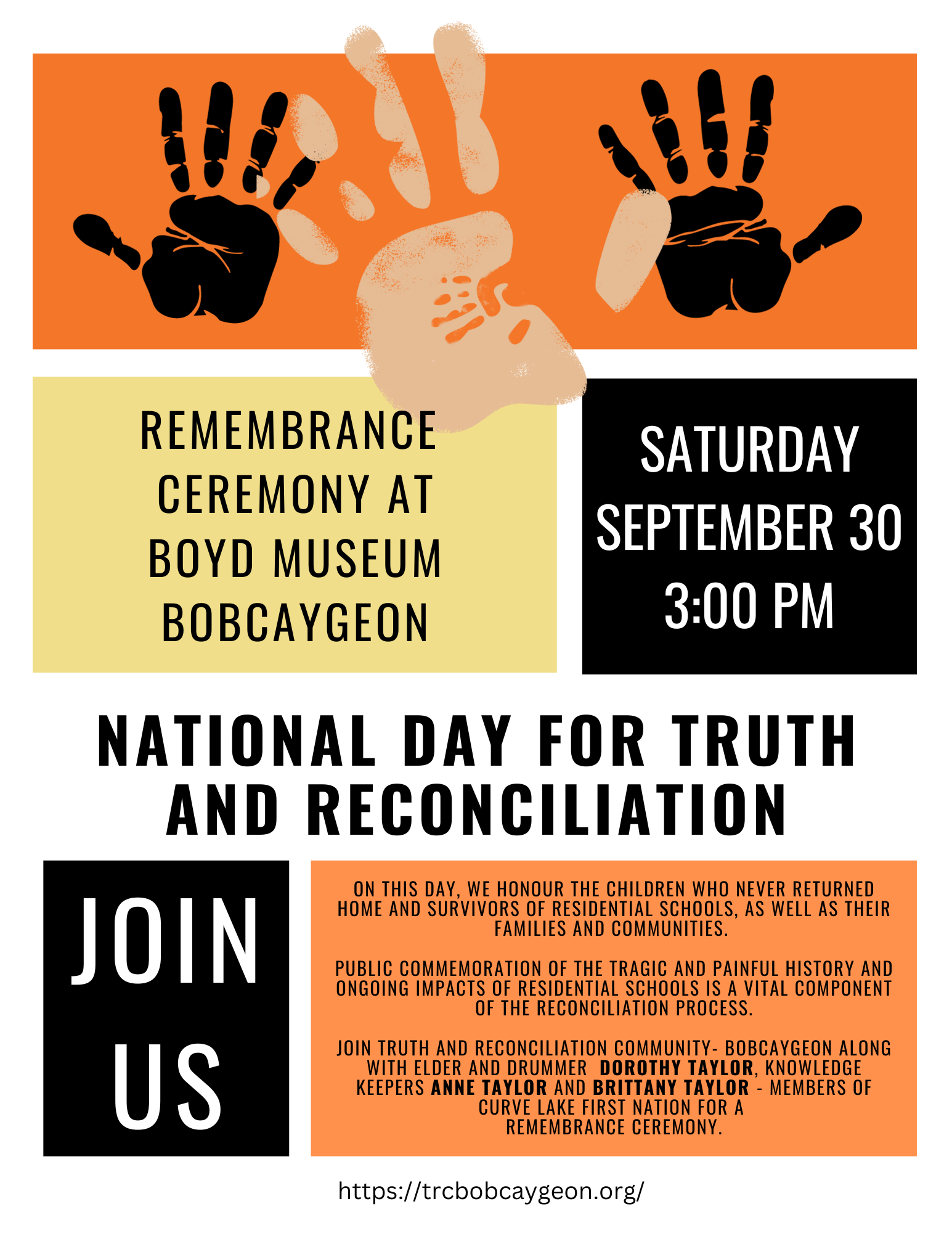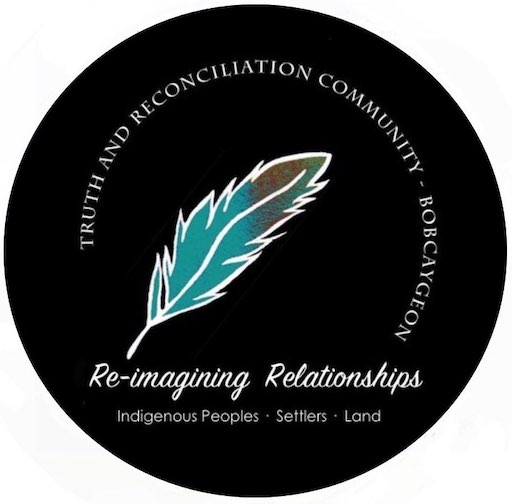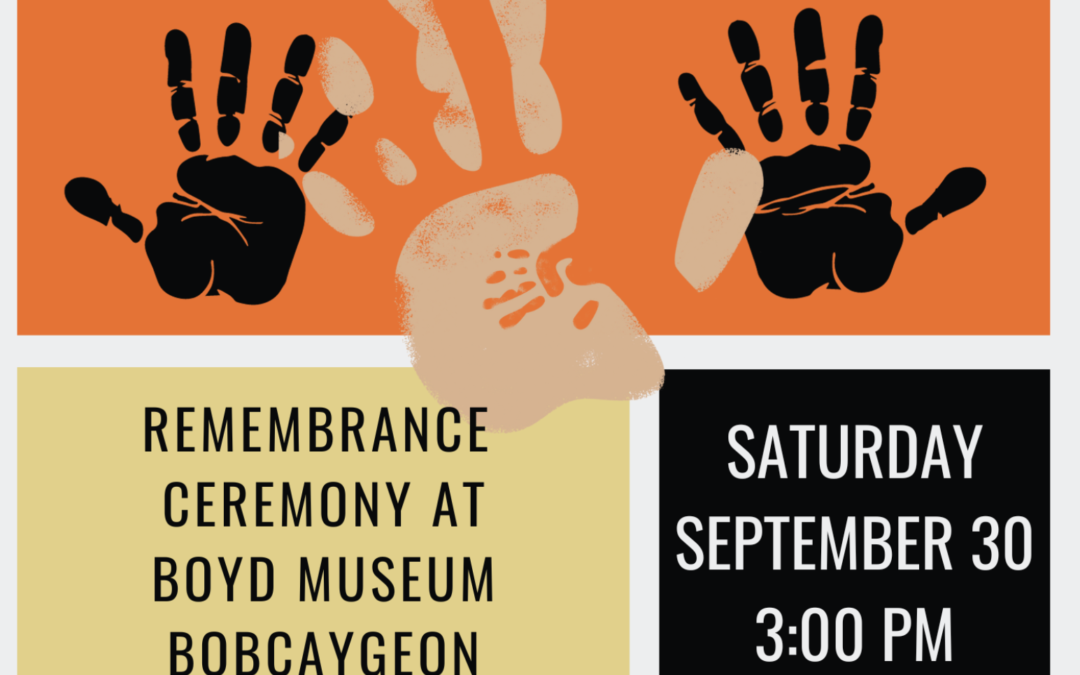September 30, National Day for Truth and Reconciliation
On Saturday September 30, the local organization, Truth and Reconciliation Community – Bobcaygeon will hold a public gathering to commemorate the National Day for Truth and Reconciliation. The event will take place at the Boyd Museum grounds, Canal Street East in Bobcaygeon at 3:00 pm on Saturday.
Knowledge keepers Dorothy Taylor and Brittany Taylor from Curve Lake First Nation will lead us in drumming and singing as we honour the National Day for Truth and Reconciliation.
On this day, Canadians are called upon to honour the children who never returned home, and to honour the survivors of residential institutions, their families and communities.
In 2015, the Report of the Truth and Reconciliation Commission in a 4,000 page Report, documented the brutal history where at least 3,200 children died amid abuse and neglect at these schools. The Report called on the governments and people of Canada to remember and to take action on the crucial history and legacy of residential schools and spelled out 94 very specific recommendations. One of these was as follows:
We call upon the federal government, in collaboration with Aboriginal peoples, to establish, as a statutory holiday, a National Day for Truth and Reconciliation to honour Survivors, their families, and communities, and ensure that public commemoration of the history and legacy of residential schools remains a vital component of the reconciliation process.
Although the federal government did not declare this day as a statutory holiday, it is remembered in ceremonies across the country. We remember too that in May 2021, the bodies of 215 children were found buried at a former residential school in Kamloops, British Columbia, and subsequently many hundreds more children have been found next to other residential institutions across this country.
Join us in Bobcaygeon on Saturday at 3:00 pm in this public commemoration of the tragic and painful history of residential schools. It is just one way of working towards a vital reconciliation process. Many of us will be wearing orange shirts to remember Phyllis (Jack) Webstad who told the story of her first day at a residential school when her shiny new orange shirt, bought by her grandmother, was taken off her as a six year old child, and instead she was forced to wear the institutional smock, a sign of what was in store for Phyllis and other Indigenous children in that and other “schools”.
This month as Canadian children return to school, it is crucial that we commemorate the history and legacy of residential schools and recommit ourselves to take action towards reconciliation.


